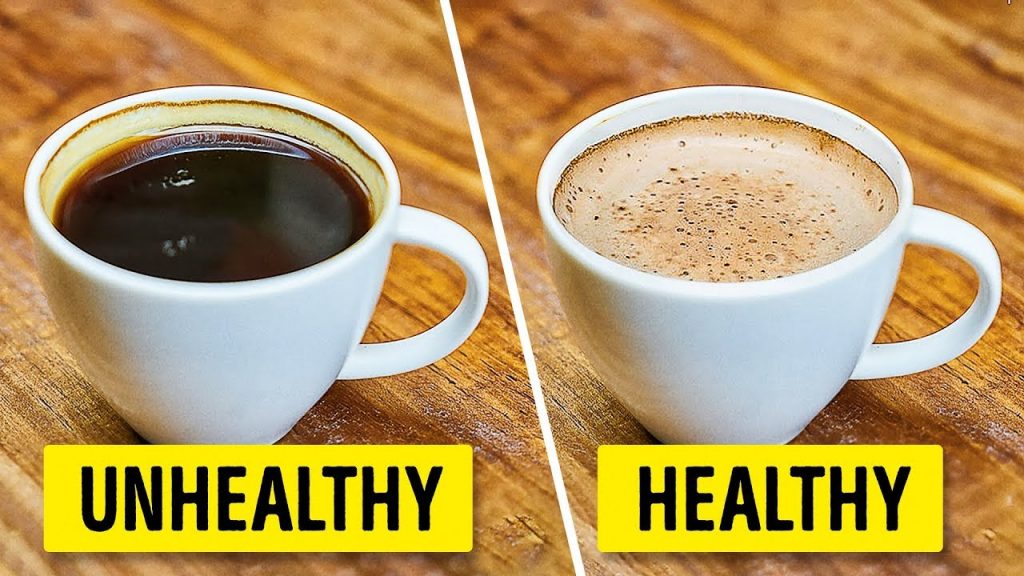For many of us, a cup of coffee is a daily essential that provides the necessary jolt to jumpstart our day. However, for individuals with psoriasis, this simple pleasure can be a cause of concern.
Psoriasis patients may worry that their favorite beverage could exacerbate their symptoms. Thankfully, recent studies have shown that drinking coffee is not associated with psoriasis flare-ups, providing some relief for those who love their daily caffeine fix.
But how is this possible? In this article, we will explore the latest research on the relationship between coffee intake and psoriasis, and offer tips for enjoying coffee without putting yourself at risk of future exacerbations.

Benefits of Coffee for Psoriasis
In recent years, studies have shown that coffee can also be beneficial for individuals with psoriasis. Here are some of the benefits of coffee for psoriasis:
- Anti-inflammatory properties: Coffee contains compounds that have anti-inflammatory properties, such as chlorogenic acid and caffeine. These compounds can help reduce inflammation in the body, which is a key factor in the development of psoriasis.
- Antioxidant effects: Coffee is also a rich source of antioxidants, such as polyphenols and flavonoids. These antioxidants can help protect the body from damage caused by free radicals, which can contribute to the development and progression of psoriasis.
- Reduced risk of psoriasis: Studies have shown that moderate coffee consumption is associated with a reduced risk of psoriasis. One study found that women who drank more than 2 cups of coffee per day had a 13% lower risk of developing psoriasis than those who drank less than 1 cup per month.
- Improved response to treatment: In addition to reducing the risk of psoriasis, coffee may also improve the response to treatment. A study published in the Journal of the American Academy of Dermatology found that patients with psoriasis who drank coffee regularly had a better response to treatment with methotrexate, a common medication used to treat psoriasis.
While coffee can offer many benefits for individuals with psoriasis, it’s important to note that excessive caffeine consumption can trigger symptoms such as anxiety and increased heart rate.
Disadvantages of Coffee for Psoriasis
While coffee can offer benefits for individuals with psoriasis, it’s important to be aware of the potential disadvantages as well. Here are some of the disadvantages of coffee for psoriasis:
- Increased inflammation: While coffee has anti-inflammatory properties, excessive consumption can actually increase inflammation in the body. This can exacerbate psoriasis symptoms and make them more difficult to manage.
- Dehydration: Coffee is a diuretic, which means it can cause dehydration if consumed in excess. Dehydration can make psoriasis symptoms worse, as dry skin can be more prone to irritation and inflammation.
- Triggers: Coffee can be a trigger for some individuals with psoriasis, particularly if they are sensitive to caffeine or have other dietary triggers. If you notice that your psoriasis symptoms worsen after consuming coffee, it may be best to avoid it altogether.
- Interactions with medication: Coffee can interact with certain medications, including some commonly used to treat psoriasis. For example, coffee can reduce the effectiveness of methotrexate, which is often used to treat psoriasis.
- Anxiety and stress: Excessive coffee consumption can lead to anxiety and stress, which can trigger psoriasis symptoms in some individuals.
As with any dietary changes, it’s important to consult with a healthcare professional before incorporating coffee into your psoriasis treatment plan.
How to Incorporate Coffee Intake When Having Psoriasis
If you have psoriasis and want to incorporate coffee into your diet, here are some tips to do so in a safe and beneficial way:
- Limit your intake: As with any food or drink, moderation is key. It’s important to limit your coffee intake to avoid excessive caffeine consumption, which can exacerbate psoriasis symptoms. A general rule of thumb is to consume no more than 400mg of caffeine per day, which is equivalent to about 4 cups of coffee.
- Stay hydrated: Coffee is a diuretic, which means it can cause dehydration if consumed in excess. Dehydration can make psoriasis symptoms worse, so it’s important to drink plenty of water alongside your coffee to stay hydrated.
- Be aware of triggers: Coffee can be a trigger for some individuals with psoriasis, particularly if they are sensitive to caffeine or have other dietary triggers. If you notice that your psoriasis symptoms worsen after consuming coffee, it may be best to avoid it altogether.
- Choose your coffee wisely: Not all coffee is created equal. Some types of coffee, such as instant coffee and decaf coffee, may contain higher levels of caffeine than others. It’s also important to choose high-quality, organic coffee to avoid consuming harmful chemicals and additives.
- Consider alternative options: If you’re concerned about the potential risks of coffee, there are alternative options available. For example, herbal teas such as chamomile and ginger can have anti-inflammatory properties and can be a soothing alternative to coffee.
FAQs
Can I Drink Coffee Daily if I Have Psoriasis?
It’s generally safe to drink coffee if you have psoriasis, but limit your intake and opt for decaf if possible. Sipping coffee throughout the day from a closed thermal cup can help minimize caffeine intake.
How to Know if Coffee Affects My Psoriasis?
If you experience symptoms after drinking coffee, consider abstaining for a few days. If symptoms persist, it is likely caused by something else as caffeine only stays in the body for up to 10 hours.
Can I Eat Something With Caffeine if I Have Psoriasis?
Having caffeine in moderation is generally safe even if you have psoriasis. However, be mindful of the amount you consume as excessive caffeine may trigger psoriasis symptoms.